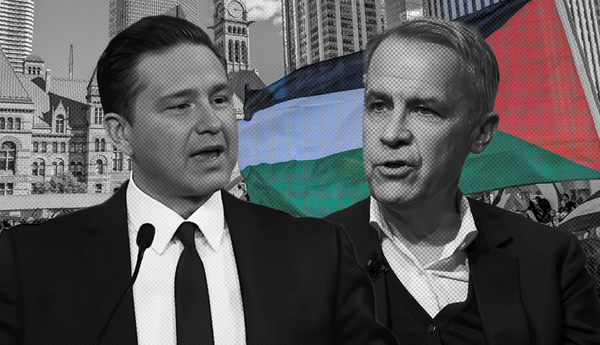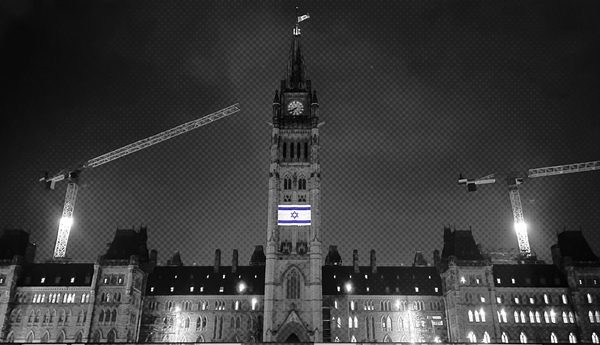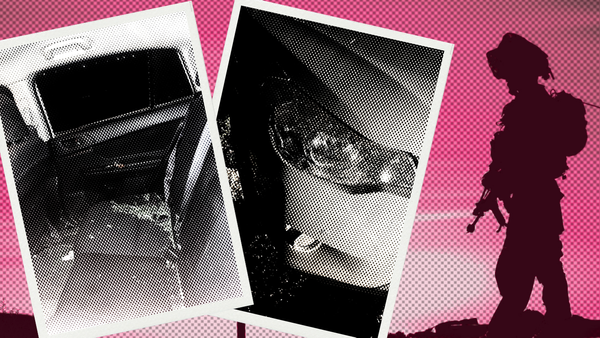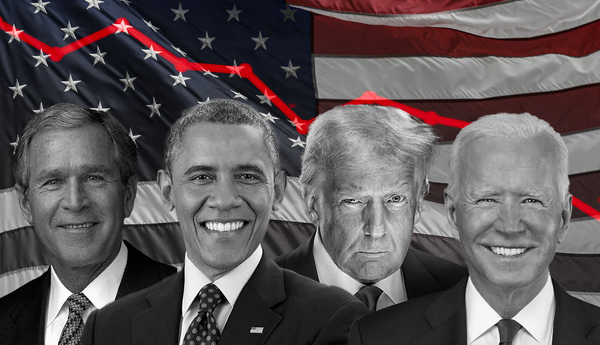In the middle of the 20th century, a European war broke out, with the defenders of democracy and pluralism facing off against a coalition of nationalists and fascists. The conflict was long, bloody and became a rallying cry for freedom.
But in this story, the story of the Spanish Civil War, the good guys do not win. Fascism triumphs. And countries like Canada stood aside and let it happen, handing a budding republic over to the hands of a fascist who would reign until his death in 1975. This goes counter to our image of a nation defending freedom, upholding democracy and fighting fascism.
In 2019, Prime Minister Justin Trudeau said in a Remembrance Day statement, “Today, we come together to honour the brave Canadians in uniform who have served our country throughout our history. They’ve built peace. They’ve defended democracy. And they’ve enabled countless people to live in freedom — at home and around the world.”
That statement perpetuates a myth about this country. If it were true, there would be some kind of official memorial to Canadian veterans who fought in the Spanish Civil War, not one built because of a donations campaign. If it were true, the RCMP wouldn’t have harassed and hunted volunteers who went to Spain. If it were true, the government wouldn’t have passed laws making it illegal to fight in the war — a law still on the books to this day, more than 80 years later.
But it’s not true, because Canada did all these things.
Canada’s response to the war puts some of the true character of our country on display, which is why we don’t talk about it much. Instead of a nation standing up against the forces of evil, you see a country too afraid of trade unions, socialists and communists to fight for democratic values.
The Spanish Civil War started in 1936, after Gen. Francisco Franco — a name you may be familiar with — attempted to overthrow the nascent Spanish Republic, which had existed for only five years. After an initial flurry, Franco’s forces — a coalition of fascists, monarchists, conservatives and the Catholic clergy — might well have petered out, were it not for assistance from a couple other guys you might have heard of: Adolf Hitler and Benito Mussolini. Franco appealed for help from his ideological brethren, and the Germans and Italians were happy to oblige. They sent soldiers, materiel and, most famously, planes and pilots.
Meanwhile, a broad coalition had formed to oppose the overturn of the republic. Socialists, communists, liberal democrats, anarchists and trade unionists — as well as some regional nationalists — joined together in a popular front to preserve the democracy they had only recently won. This often motley coalition of the centre and the left fought to the bitter end against fascism.
Throughout the war they would face severe equipment and supply shortages. They too appealed to the world for assistance. But the likes of France, Britain, the United States and Canada — the so-called great democracies of the world — left them to languish, ultimately to their doom. Only Mexico and the Soviet Union offered assistance of any real substance.
But while these governments may have abandoned the republicans to their fate, their citizens did not. Thousands of volunteers from around the world made their way to Spain to fight in the International Brigades against fascism.
Canadians were no exception. These volunteers would eventually be known as the Mackenzie-Papineau battalion, named for William Lyon Mackenzie and Louis-Joseph Papineau, who led rebellions against the colonial governments of Upper and Lower Canada in the past century. The Mac-Paps, as they were often called, were made up of volunteers from across the country. The Communist Party of Canada (CPC) did much of the organizing, and many of the volunteers would be party members or sympathetic to the cause.
There’s some irony then that Mackenzie’s own grandson was Canada’s prime minister at the time. Far from a supporter of the Spanish republican cause, William Lyon Mackenzie King was the prototypical appeaser. He was also quite sympathetic to Hitler. Awed, even.
In June of 1937, King met with Hitler in Berlin for a lengthy face-to-face meeting. In his diary, dictated soon after the meeting, King can’t help but express his admiration of the Nazi dictator: “I spoke … of what I had seen of the constructive work of his regime, and said that I hope that that would continue. … That it was bound to be followed in other countries to the great advantage of mankind.”
Just a few months before this, in an incident King no doubt would have known about by then, Hitler’s infamous Condor Legion — the German fighter and bomber pilots sent to assist Franco’s cause — conducted a large bombing raid on the small town of Guernica. It wasn’t a military target, but a civilian one, attacked during the busy market hours. Somewhere between 170 and 300 civilians were killed in the attack, but at the time the figure was sometimes reported as high as 1,800.
Not only was the horrific bombing widely publicized, but Picasso was commissioned to paint a large mural of the attack that was put on display in the 1937 Paris International Exposition, before touring the world. And here is King, a few months later, saying of Hitler: “He has a very nice, sweet, and one could see, how particularly humble folk would come to have a profound love for the man. … As I talked with him, I could not but think of Joan of Arc. He is distinctly mystic.”
So it’s no surprise that in 1937, King’s government passed the Foreign Enlistment Act, which forbade anyone from joining an overseas army, and was then specifically targeted at the Spanish volunteers with an order in council. It meant those looking to fight wouldn’t be granted the necessary paperwork to make the trans-Atlantic journey to get to Spain.
While no one was prosecuted under the law, it was technically illegal to volunteer and fight in the war. Even still, about 1,500 Canadians did so. The country was still in the depths of the Great Depression, and almost all of the Canadian volunteers for the war were immigrants, working class, and often quite poor. Out of those, only approximately 800 would survive. They were given nothing by the Canadian government after the war for their efforts.
After the Republican forces disbanded the international brigades in fall 1938, the Canadian government refused to bring volunteers home, unlike countries such as the U.S. and United Kingdom. They were forced to raise money elsewhere to get back.
When they finally did return, they were greeted by some as heroes. A crowd of about 10,000 in Toronto greeted more than 250 Mac-Paps that came home in February 1939. Methodist preacher Salem Bland said at the welcome rally, “Canada didn’t understand at first what you were doing, but understands now, and as time goes by, you will have more friends, more honour, because you have done one of the most gallant things in history.”
But they didn’t gain those friends, or that honour. A Globe and Mail editorial, for example, excoriated the government for allowing their return: “The men returning from Spain are acclaimed as heroes. Many of them deliberately defied the [law]. We are not aware that the Government is even taking the trouble to learn how they were induced to do this. Is the situation simplified by the fact that they fought in a lost cause? At any rate, what is a law for?”
The government brought the War Measures Act back into force that year. Widespread press censorship was a result, which was used to keep the Mac-Paps out of the news, to the point that much of the public considered them either dupes of the communists, or more troublingly, people who fought alongside Franco. Under a special provision of the act, the government would also soon outlaw the Communist Party and imprison much of its leadership.
The Canadians who went to Spain were fighting for democracy. One of the first five volunteers to arrive in Spain, and likely the first Canadian to die in the war, was Thomas Beckett. He wrote to his girlfriend back home, “You no doubt know why I am here. It is because I am what you do not want me to be, a Communist. Even if I had no political beliefs and was not a Communist, my abhorrence of cruelty, of unnecessary suffering, brutality, greed, and tyranny would lead me to do the same thing.”
Beckett’s reasons for fighting sound very much like those of the mythical Canadian, fighting for freedom. But he was also a Communist, and the Canadian government wasn’t about to allow for the valorization of, or even assistance to, someone like Beckett.
The RCMP opposed the return of the Mac-Paps, but once they got back they would keep tabs on the volunteers, some for decades. The attitude of the force is probably best summed up by an RCMP inspector, Charles Rivett-Carnac, who, in a 1939 letter, laid out his thoughts on the dueling ideologies of left and right at the dawn of the Second World War.
Rivett-Carnac wrote, “While the Communist program embodies the destruction of the state apparatus of the government and the setting up of a new economic order, the Nazi program which has been brought into being in German has retained the principles of the old system to the extent that a modified form of capitalism now exists in that country.” Twenty years later, Rivett-Carnac would rise to commissioner of the RCMP.
As historian Greg Marquis notes in his history of Canadian policing, The Vigilant Eye, once the Nazis invaded the Soviet Union in 1941, the Canadian public’s attitude toward the CPC changed “to the frustration of senior RCMP officers who always viewed anti-fascists as more of a threat to Canada than fascists.”
In the views and actions of the inspector and prime minister, you can see the thread that runs through much of Canadian history: Freedom and democracy were abandoned as principles if those fighting for it were too far on the left, even if their enemies were fascists.
There are plenty of examples throughout our history of this pattern repeating itself. Canada was happy to bring in far-right Ukrainian nationalists after the war to supplant the largely left-wing Ukrainian population in the country. Their memorials to the Ukrainian SS divisions are now sprinkled throughout the country. And you can see it even today in the way pipeline protesters are met with militarized RCMP officers and put under heavy surveillance, while the far-right blooms within the Canadian Forces.
A country that truly believed in the ideals of building peace and protecting democracy, as Trudeau has put it, would have at the very least acknowledged the wrongs it did to the Mackenzie-Papineau Battalion volunteers. But it has not righted those wrongs. They have never received the official recognition other veterans have gotten. The names of the dead aren’t listed alongside those of other wars in the Peace Tower.
The reasons for this are clear: There were too many Communists among the Mac-Paps. No matter how just the cause, it was fought by the wrong type of people.
That, right there, is the true soul of this country.






